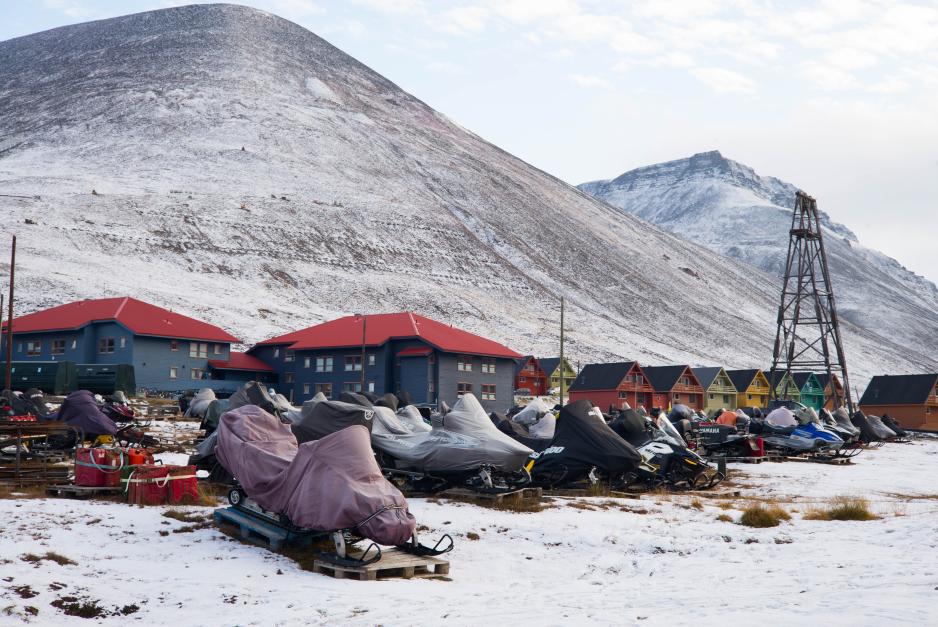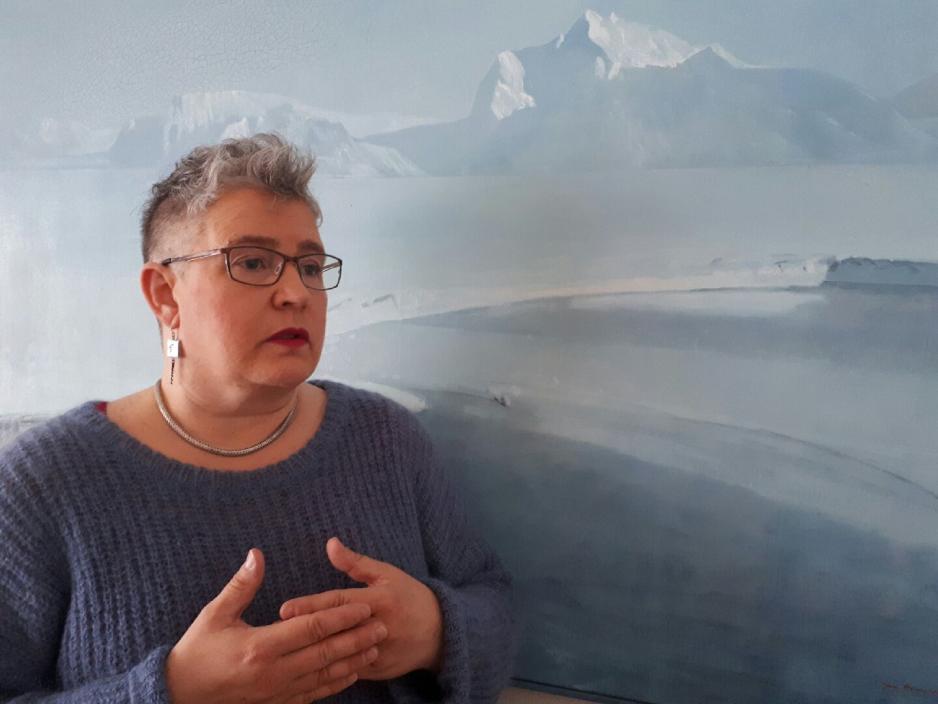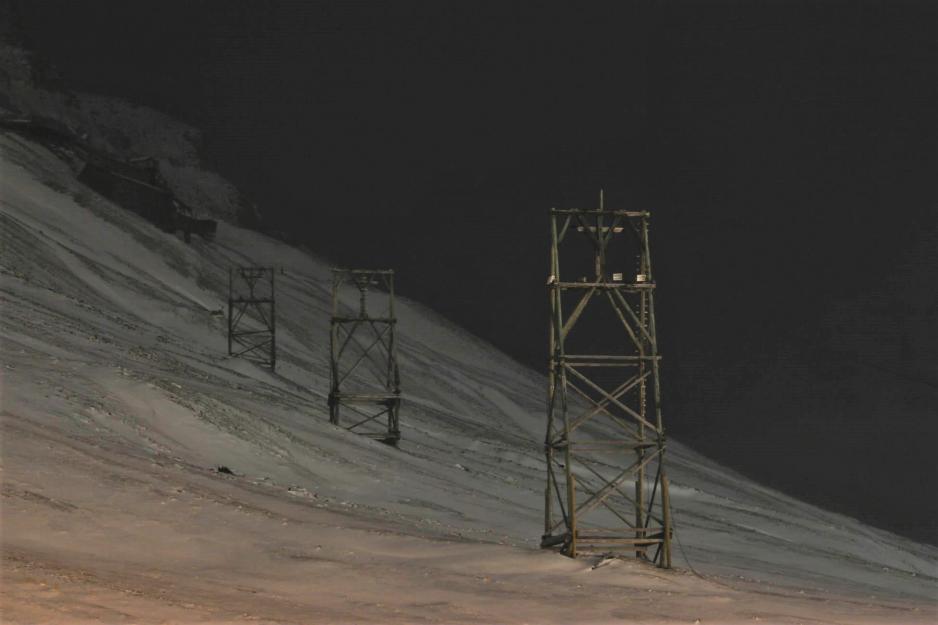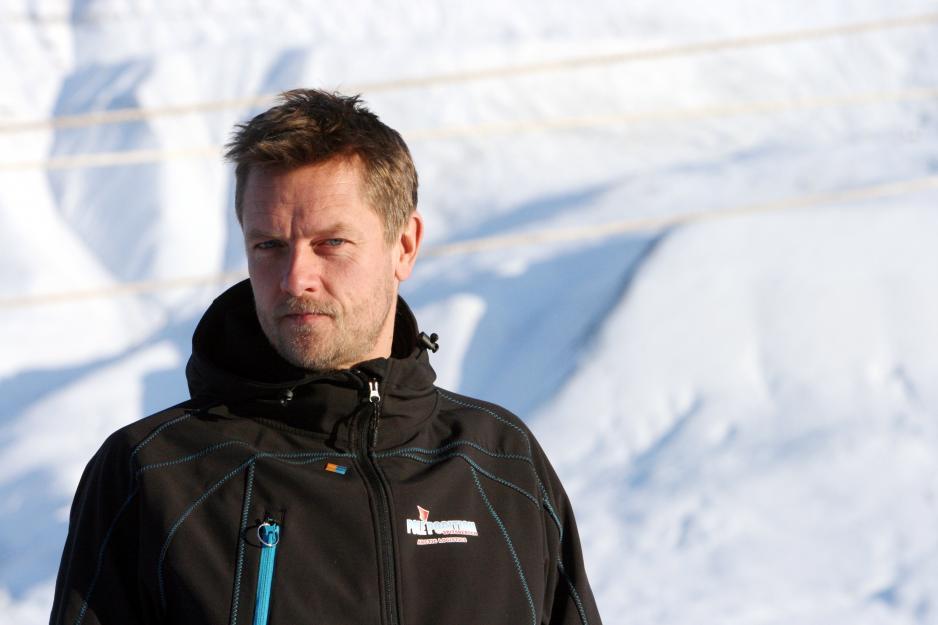“This is not just about business in Svalbard; this is also about Norwegian sovereignty.”

Snowmobiles in Longyearbyen. Photo: Brett Davis/Flickr
Several business actors in Svalbard argue that the crisis packages from the Norwegian government do not solve the problems experienced by businesses on the archipelago.
Hilde and Stig Henningsen are local entrepreneurs in Svalbard who recently published an open letter on High North News to Svalbard Minister, Justice and Preparedness Minister Monika Mæland as well as Trade, Industry and Fisheries Minister Iselin Nybø and Foreign Minister Ine Eriksen Søreide.
Hilde and Stig Henningsen say to High North News that they worry about local businesses in Svalbard.
“We live on an archipelago that in many ways is isolated from the rest of the world. In one way it feels safe, at least when Svalbard does not have any registered cases of Corona infection. However, it also appears dramatic as a decision has been made that has enormous consequences for business here”, they say to High North News, and they continue:
“We do of course comply with infection control regulations and procedures, and we are loyal to national regulations. We take part in this huge joint effort on par with everyone else. As a citizen one has to accept the measures introduced by the authorities. However, we also argue that the government has to take the consequences of its decisions.”
In the autumn and winter, there are hardly travelers on Svalbard. Operators in active tourism make most of their money between the months from March through August.
“Even though our specific company or industry have not been told to shut down, like e.g. hairdressers and bars have had to, we are nevertheless in reality shut down. Very few people will want to spend 14 days quarantined immediately upon arriving to Svalbard."
The crisis packages from the state to Norwegian businesses does not hit the mark for Svalbard’s travel industry. Season-based activities are not entitled to financial support. There are also very vague signals from the government about whether port and berthing taxes are covered by the crisis packages.
“The authorities say they will assist companies with support measures and packages, and they Svalbard is to be included. And we believe this. However, it turns out that the proposed solutions do not quite solve the problems we have in Svalbard."
“Many companies here do not have the financial muscles to survive if this goes on. The very foundation for operations through the rest of the year will be gone for many”, says Stig Henningsen, and adds:
“Our company has not yet received clarification as to what packages we are entitled to. Yet we have running costs and no bookings anymore.”
Many companies here do not have the financial muscle to survive if this goes on. The very foundation for operations through the rest of the year will be gone for many
“One has to consider Svalbard with a Svalbard filter, not with Oslo filter. We feel that the authorities in Oslo do not quite grasp what reality here is really like.”
“What happens if we and other local businesses here do not survive financially? This is not just about business in Svalbard, it is also about Norwegian sovereignty. Having an active, vibrant society in Svalbard is vital for maintaining Norwegian sovereignty.”
“Being a business owner in Longyearbyen is about more than making money; business here is part of the Norwegian social contract about maintaining a Norwegian community in Svalbard”, they argue in their letter.
Being a business owner in Longyearbyen is about more than making money; business here is part of the Norwegian social contract about maintaining a Norwegian community in Svalbard
The Norwegian government launched its Svalbard business strategy in October 2019. The strategy announces an initiative for knowledge-based and sustainable business on the archipelago. The strategy also states that Norway shall maintain sovereignty firmly and constantly, and that Norway is to maintain Norwegian communities in Svalbard.
Terje Aunevik, Chair of Svalbard Business Forum, says to High North News that the tourist industry in Svalbard has come to an abrupt halt due to the current pandemic.
Svalbard Business Forum represents more than 60 local businesses in Svalbard and works on an overall level to facilitate business on the archipelago.
“Bit by bit, this is also hitting the rest of business here. They lag behind, but we are beginning to see the consequences now. When May has passed, I believe many companies will be struggling with red figures”, says Aunevik to High North News.
Mining used to be the dominant industry in Svalbard. Today, tourism is one of the key industries on the archipelago.
“Local business in Svalbard mainly consists of relatively small companies. There are not any capital-strong communities here. Many operate with red figures through most of the year, but most of them manage to reach an overall balance where they cover their losses during peak season, which is from March through August.”
The mining industry employed some 400 people in 2009. In 2020, this figure is down to approximately 100.
Tourism employed some 280 persons in 2009. By 2018, this figure had increased to approximately 600.
“Predictability is amongst the most important things for tourism, and that is of course hard to achieve during a pandemic. However, we believe it is crucial to at least set a date for when we can resume business as usual again. And that is urgent for many companies.”
Local business in Svalbard mainly consists of relatively small companies. There are not any capital-strong communities here
“Tourism suprassed mining when it comes to turnover in Svalbard as far back as in 2015. Tourism and culture has an annual turnover of NOK 1 billion. This is a turnover that most likely will be lost for 2020.”
“Many of the support schemes presented by the government do not cover the losses suffered by businesses here. And an increasing number of companies in Svalbard fall outside the scope of these crisis packages.”
Aunevik believes it to be essential that locally owned business and locally based tourism on Svalbard be maintained first.
“I am deeply worried that this crisis is hitting the local actors the hardest. They are vital for Norway and for Norwegian Svalbard policy. They contribute to population and activity. Today, there are no advantages in being locally based. However, being that incurs year-round costs. I believe the most important feature will be support schemes that contribute to businesses being able to operate locally and throughout the year in Svalbard.”
“That said, I am glad that we live in a country where there are support schemes for businesses at all. The government has also adjusted some of their initiatives for us up here already, and credit is due to them for their being attentive. We understand that it is hard to find schemes that fit all.”
“We fully understand that this is a global crisis. People and health should come first. And we understand that this is hard to balance against the economy.”
This article was originally published in Norwegian and has been translated by HNN's Elisabeth Bergquist.




